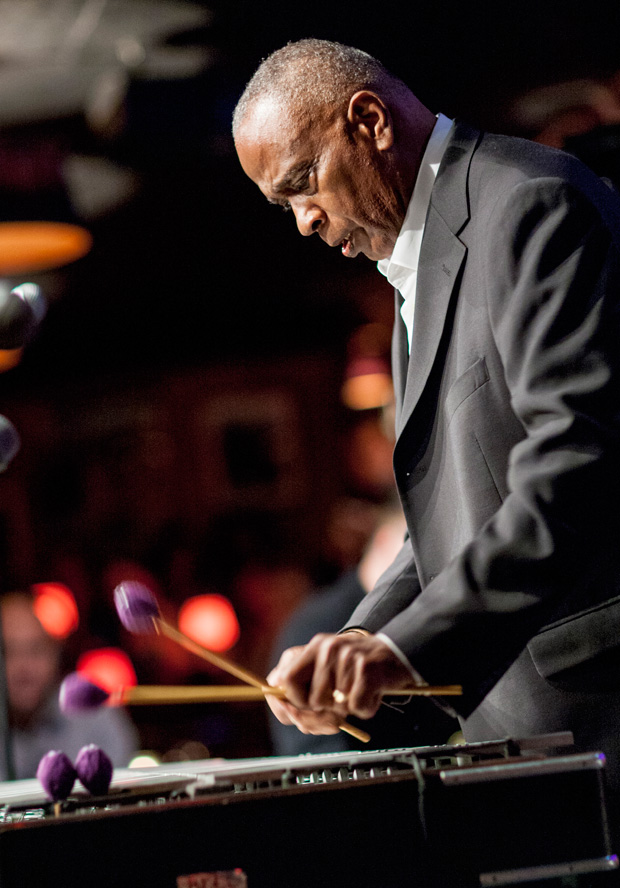BOBBY HUTCHERSON (27/01/41 – 15/08/16) New sounds in jazz are in abundance by way of technology as well as technique, but it is important to recognise those who have extended the sonic range of the art form. Though mainly known as a brilliant vibraphonist, Bobby Hutcherson skillfully developed the less fashionable marimba as a frontline voice. His deployment of the instrument in a number of dynamic small groups throughout his career enabled him to create a rich, varied sound palette, often imbuing his songs with deep African resonances in acoustic and electric settings. A Los Angeles native, Hutcherson was part of the generation of progressive 1950s West Coast musicians that included Carmell Jones, Curtis Amy and Eric Dolphy, and it was with the latter that Hutcherson would make one of his definitive artistic statements. His work on Dolphy’s groundbreaking 1964 album Out To Lunch! is exceptional, first and foremost because of his understanding of the saxophonist’s singular musical mind, not to mention his ability to deftly negotiate unconventional form and content. Hutcherson would go on to become a vital Blue Note records artist, where he worked right across post-bop, avant-garde and soul jazz, and his contribution to the music of Andrew Hill, Jackie Mclean, Tony Williams, Joe Henderson and Grant Green is notable. However, Hutcherson’s own numerous recordings for the label are consistently good, above all 1966’s Stick Up!. Furthermore, the partnership Hutcherson established with Texan saxophonist Harold Land yielded some fine sessions that highlighted the tremendous finesse as well as flourish of which the vibraphonist was capable. Fully aware of the instrument’s potential to create mysterious, shadowy atmospheres as well as sharp, bright, ringing pitches, Hutcherson crafted wonderful tone poetry at times. Throughout the 1970s Hutcherson wholeheartedly embraced the fusion movement all the while blending Afro-latin elements into his work to good effect, as can be heard on the excellent Montara, before returning to more straightahead territory in the 1980s and 1990s. Although he recorded far less in the millennium and beyond, he remained a key member of the jazz fraternity, valued for his wisdom as well as grace. An expressive soloist, Hutcherson was also a sensitive composer, as exemplified by his majestic, enchanting ‘Little B’s Poem’. from www.jazzwisemagazine.com
